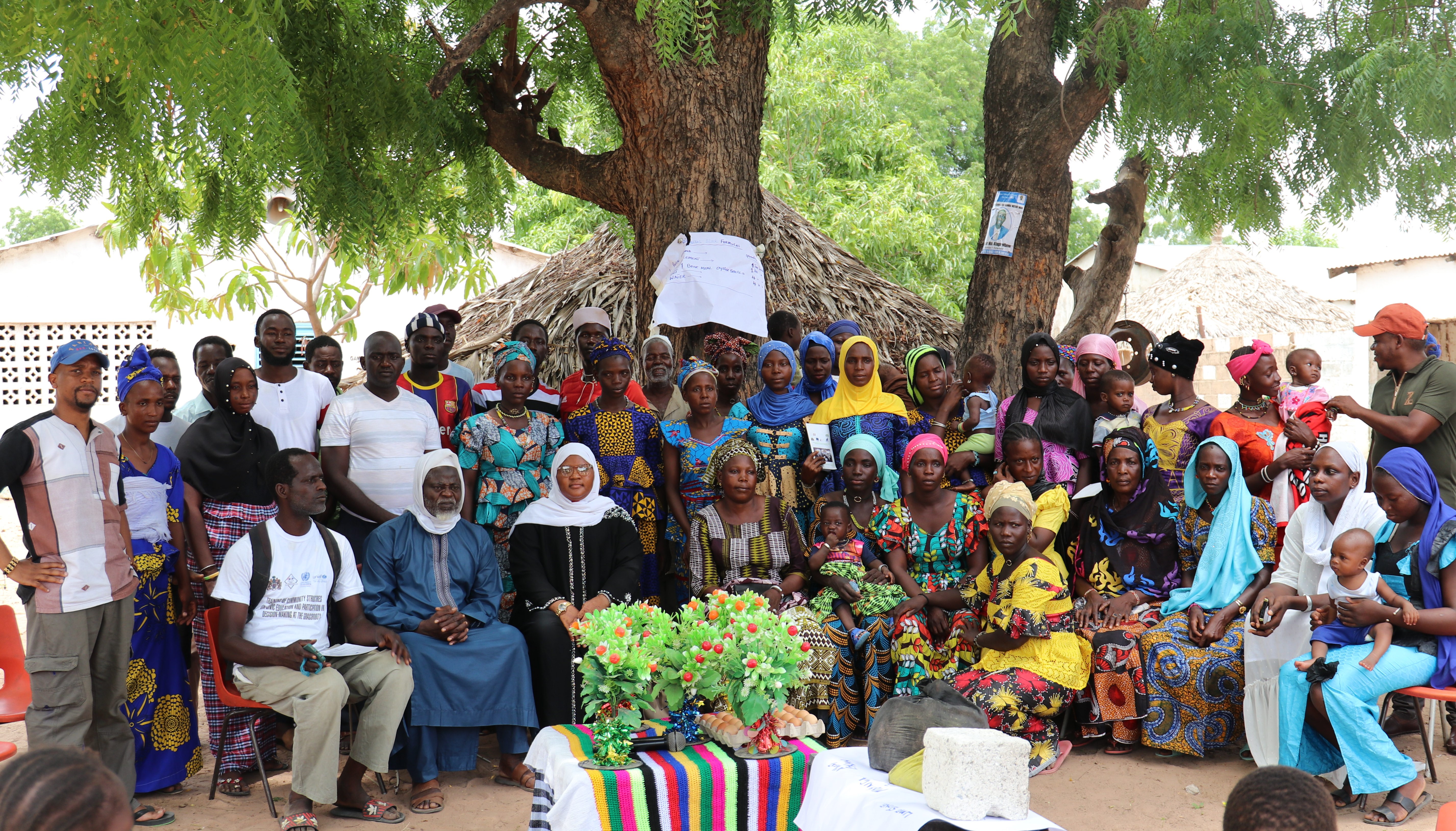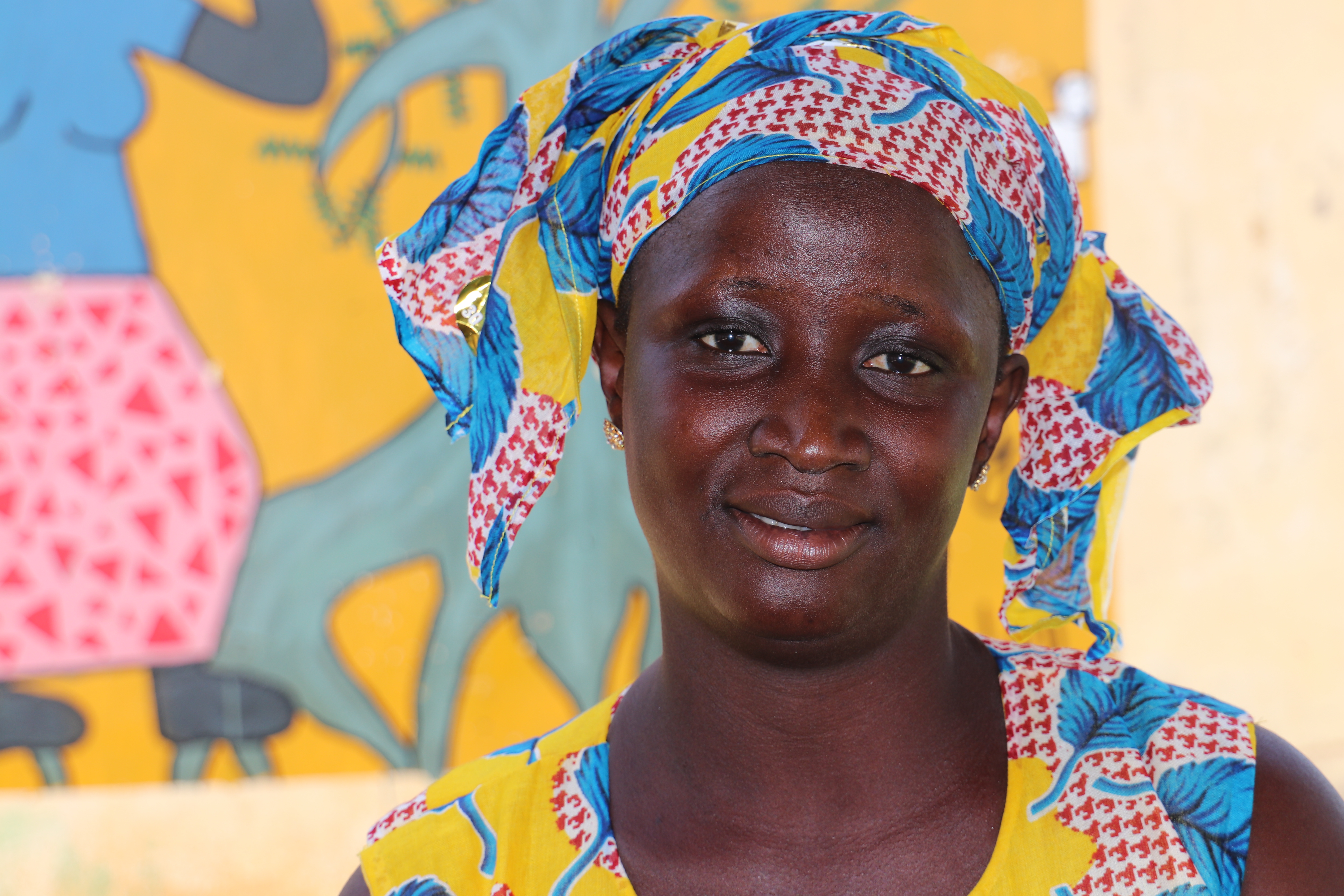The International Trade Centre, through its European Union-funded Jobs, Skills and Finance programme for women and youth, graduated 600 women and young people in 20 Farmer Business Schools across the country.
The Farmer Business School (FBS) programme was implemented in partnership with the Food and Agriculture Organisation (FAO), the Department of Agriculture through the Ministry of Agriculture, the Institute of Social Research and Development (ISRAD) and Innovator Spaces. The initiative is the first of its kind in The Gambia.
This business school initiative was aimed at changing the perspective of farmers by introducing them to new farming techniques thereby enhancing productivity and income opportunities. The school explores hands-on learning approaches to strengthen the knowledge of farmers on good agricultural practices such as financial management, bookkeeping and resource mobilization.In tandem, farmers are supported with pre and post harvest technologies
Beneficiaries from 20 schools across the three regions of Lower River Region, Central River Region and North Bank Region gave testimonies of how they were working in their farms before the FBS, what they learnt from the school and how it has enhanced their outputs, productivity, and income levels.

Kaddy Kanteh, a FBS beneficiary in Kiang Kaiaf stated that “the first effect the initiative had on me was how I operate and manage my finances.” Kaddy was able to formalise her business thanks to initiative. “I registered my business and opened a bank account and started saving a quarter of my total income,” she told us.
Before the school was introduced, Binta Manneh, an agri-business entrepreneur in Wassu and Marram Sallah, a youth agro entrepreneur in Njau were among the many women who never thought that farming could be a business or yield more than just for family consumption.
In Marram’s testimony, “what the farmer business school taught me is that instead of spending all that I earn on buying clothes, basins, and social functions, I would split my income into three. I would use the first share to reinvest into my business, save the second share into my account and then use the third share to spend on my personal and household needs. This is how all the women in this school manage their finances now” she stated.
Maram went further to highlight that she bought a goat from her last investment. “That goat is now pregnant” she says with a broad smile. Mariam is confident of further expanding her business “this means I am expecting growth in my income and number of animals, “she added.
Binta Manneh, who spoke along the same line as all other beneficiaries in Wassu, expressed with joy how the FBS has boosted both her production capacity and income.
 Binta Manneh
Binta Manneh
“I now take account of my investments, output, income and profits.” This way, she said, “I am able to measure my progress and assess my growth.” Binta went further to state that “my production capacity used to be about 3 bags of onions as well as tomatoes. But now, I have already sold six crates of tomatoes and still have more in stock. I have kept them in containers as I have learnt, to preserve them for longer periods.”
Beneficiaries from Mamud Faana, Njoben, Jahaur, Manneh Kunda are just a few among the numerous voices that echoed gratitude as well as lessons learned from the farmer business schools.
Fatou Jabbie, one of the women beneficiaries in Jarra Toniataba in the Lower River Region spoke of growth in a way that not many have. She said, “we have been taught how to upscale our sales but if there are leftovers of items like carrots and cucumbers, we now know how to process them into soap to further sell.”
She elaborated that, because of all she has learnt and how that enhanced her income levels, “I am able to pay for my children’s school fees, join women clubs where we do regular contributions and with all these, I am able to save some money in my account” she said smiling.
One testimony that was exciting to hear, came from Adama Sarr in Jamali Ganyado. She stood up to speak on behalf of her fellow women in Jamali FBS and she said “Women of Jamali have been empowered. We are earning enough from our gardens to take care of our households and keep our children in school.” Before the FBS, she said, “women here were exposed to a lot of vulnerabilities. Women were dependant on their husbands for almost everything. When we needed uniforms for our children, or even something to add onto the fish money, we would ask our husbands. But today,” she exclaimed, “When our children need to settle school bills or buy books, we no longer go asking for help because we are able to take care of them ourselves”.
The ITC and its partners reaffirm their commitment to empower women and youth led ventures through the Jobs, Skills, and Finance programme to enhance the capacities of small holder farmers with knowledge and skills that would drive growth and boost their competitiveness.
Enjoyed this post by Bubacarr? Share it with others.
View count: 1920